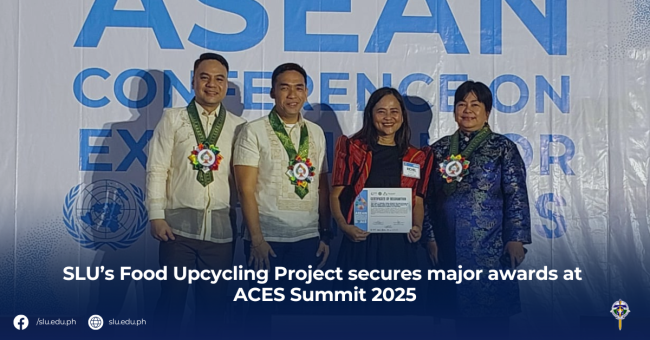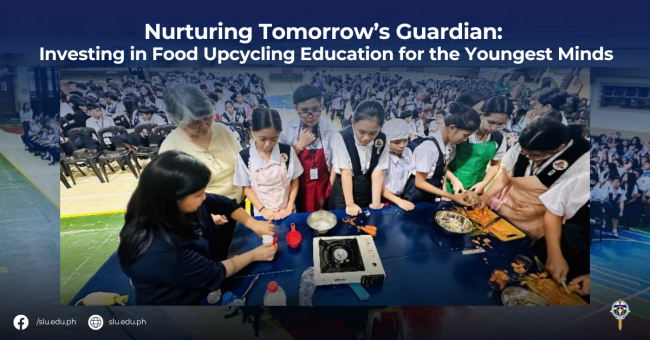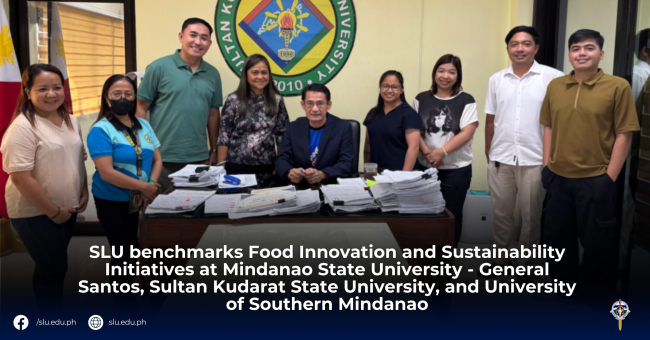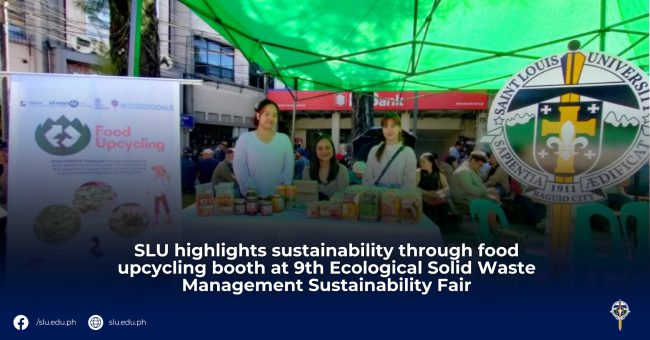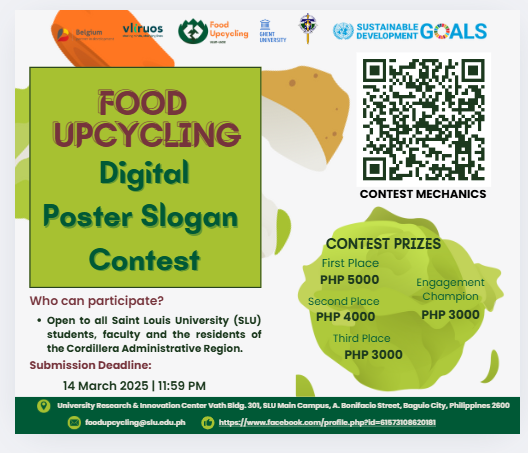In April 2025, the University Research and Innovation Center (UnRIC) of Saint Louis University (SLU), under the leadership of Richel L. Lamadrid, PhD, benchmarked three institutions in Mindanao. The Mindanao State University–General Santos, Sultan Kudarat State University, and the University of Southern Mindanao. This initiative formed part of the VLIR UOS Project titled “From Trash to Treasure: Paving Pathways for Food Upcycling to Curb Post-Harvest Losses in the Vegetable Supply Chain of the Cordillera Administrative Region in the Philippines.” The visit aimed to identify leading institutions and individuals actively engaged in innovative food processing technologies, examine best practices in sustainable resource utilization, and assess the development of community-based research efforts. By understanding where these advancements are taking place, who is driving them, and how they have evolved over time, SLU seeks to strengthen its own research capacity. More importantly, the visit underscored the vital role of collaboration and innovation in addressing post-harvest losses and promoting sustainable food systems—key components in achieving the broader goals of the project and contributing to long-term regional development.

